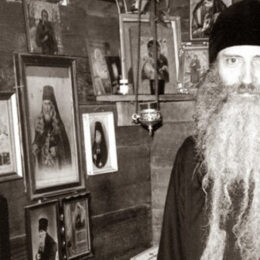Wall Street Opinion Journal | Christopher Orlet | May 1, 2007
A sectarian split among atheists.
A recent Associated Press story, headlined “Atheists Split on How Not to Believe,” has set fingers tapping throughout the blogosphere. The gist of the story as I read it is that there are soft atheists and fundamentalist atheists, and the softies are concerned that the fundies are becoming too outspoken, too uppity, indeed that they are giving unbelievers a bad name–a good trick that, like trying to give a bad name to an oil slick.
As usual, the impetus for this new development was 9/11, and the death and destruction caused by religious fanatics, after which some atheist intellectuals decided there was complicity in silence, thus they would be silent no more.
The spokesman for the soft atheists has been Greg Epstein, a “humanist chaplain” at Harvard University. The Rev. Mr. Epstein is encouraging the fundamentalists or “New Atheists” to pipe down, and warns that their outspokenness is keeping fence-sitters from coming over to the side of the humanists, a dubious allegation, at best. Though I can’t prove it, it seems to me that passionate advocacy attracts converts as often as it drives them away.
The soft atheists have it in for three bestselling authors in particular: Richard Dawkins (author of “The God Delusion”), Sam Harris (“Letter to a Christian Nation”) and Christopher Hitchens (“God Is Not Great”). Though they differ on many points of scripture, all three are passionately antireligious. Mr. Dawkins considers God “a psychotic delinquent.” The doomsayer Mr. Harris thinks religion will destroy the world if not stopped, and Mr. Hitchens holds that “religion poisons everything.” Mr. Epstein finds these authors rigid and intolerant, which ultimately makes them no different from the religious fundamentalists they condemn. Nor is he alone. As one English dean told the Guardian, Mr. Dawkins is “just as fundamentalist as the people setting off bombs on the tube.”
Harvard’s E.O. Wilson, another secularist, has also criticized the New Atheists, and suggests their tone is alienating important faith groups whose help is needed to solve the world’s problems. “I would suggest possibly that while there is use in the critiques by Dawkins and Harris, that they’ve overdone it,” Mr. Wilson told the AP.
Messrs. Epstein and Wilson have a point. Mr. Dawkins, et al., are intolerant. Mr. Hitchens, in particular, is intolerant of a great many things: Hypocrisy. Vacuity. Bad books. Henry Kissinger. He is especially intolerant of the multiculti Europeans, whom he considers too tolerant of intolerant Islamic fundamentalists. Though to expect an old pugilist like Hitch to ease up on believers would be like asking Joe Frazier to go easy on Mohammed Ali.
Certainly Messrs. Harris and Hitchens are no different from outspoken skeptics of yesteryear. “I see little evidence in this world of the so-called goodness of God,” said H.L. Mencken nearly 75 years ago. “On the contrary, it seems to me that, on the strength of His daily acts, He must be set down a most stupid, cruel and villainous fellow.” Writing half a decade earlier Col. Robert G. Ingersoll noted that “the Agnostic does not simply say, ‘I do not know.’ He goes another step and says with great emphasis that you do not know.” In their day Mencken and Ingersoll were both widely jeered. They were also highly respected by their intellectual peers.
. . . more



